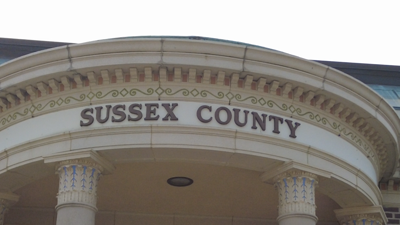GEORGETOWN, Del. — The Sussex County Council denied a conditional use request that would've allowed U.S. Wind, through its subsidiary Renewable Redevelopment, LLC, to build a major electrical substation near the Indian River Power Plant.
The council voted 4-1 Tuesday against the substation. The only person to vote for the proposal was Michael Vincent. The substation would've served as the onshore connection point for power generated by offshore wind turbines in the Atlantic Ocean. The project could now face significant delays or even be stalled entirely.
In a statement to CoastTV, U.S. Wind said that this was a terrible anti-business decision by the county.
"We know that the law is on our side and are confident that today’s decision will not stand," said U.S. Wind. "Our plans to build the region’s most important clean energy project are unchanged.”
Mark Schaeffer supported his vote against the proposal saying, "One argument was compelling to me. It was that this project and its benefits flowed to the state of Maryland - In my opinion this application does not benefit the inhabitants of Sussex County."
The decision led to mixed opinions of those who attended the meeting.
"It's more than a sad day for the planet," said Dustyn Thompson with the Sierra Club. "It should be a sad day for everyone in Delaware."
However, according to David Stevenson with the Caeser Rodney Institute, "This is an early Christmas present for the folks in Sussex County."
The proposal has stirred significant debate since it was first introduced. The substation would be used to receive four major power cables from U.S. Wind's proposed turbines, which are planned to come ashore through local beaches, wetlands, and inland bays. Just last week, DNREC gave final approvals for cables to run underneath Delaware Seashore State Park.
Andy Tylecki explained to CoastTV why he isn’t against the cables being built at the power plant.
“Considering that the Indian River Power Plant is the site for the hookup of the transformers and the substations, which is already a power plant area, it makes sense, you know,” Tylecki said.
While federal and state approvals are also required for the wind project (and many have been given the green light already), the conditional use permit is a critical step in the process, giving Sussex County some say in the development.
The substation is just one component of US Wind's myriad projects related to the wind farm. In November, the Maryland Board of Public Works approved a pier replacement that would house the wind farm's operations and maintenance facility.
Controversy and Public Backlash
The substation has faced pushback from some locals, particularly during a public hearing in July. Critics, including the Town of Fenwick Island, argue that the substation would have negative impacts on Sussex County without providing clear benefits.
"The consequences of the proposed use to support offshore wind development does not promote the prosperity, or welfare of present or future inhabitants of Sussex County," Fenwick wrote on its website.
Fenwick and Ocean City are among some of the local entities suing to stop the construction of the wind farm.
Applicant Pushes Back
Jim Fuqua, an attorney for the conditional use applicant, has emphasized that the council’s decision should focus solely on the appropriateness of the substation's location, not the broader merits of offshore wind energy.
In a letter submitted during the July hearing, Fuqua wrote, “The merits of wind power and the off-shore turbines [...] is not part of this conditional use application.” He argued that the council’s role is to determine whether the proposed location near the Indian River Power Plant is suitable for the substation.
Environmental and Economic Implications
The Bureau of Ocean Energy Management recently released its final Environmental Impact Statement for the offshore wind project. The rules set limits on how much unintentional harm can be done to species like the endangered North Atlantic right whale, humpback whales and dolphins.
Supporters of the project argue that offshore wind could bring long-term economic and environmental benefits to Delaware, including renewable energy generation and potential job creation. However, opponents remain unconvinced, pointing to concerns about impacts on local ecosystems, property values, and tourism.







